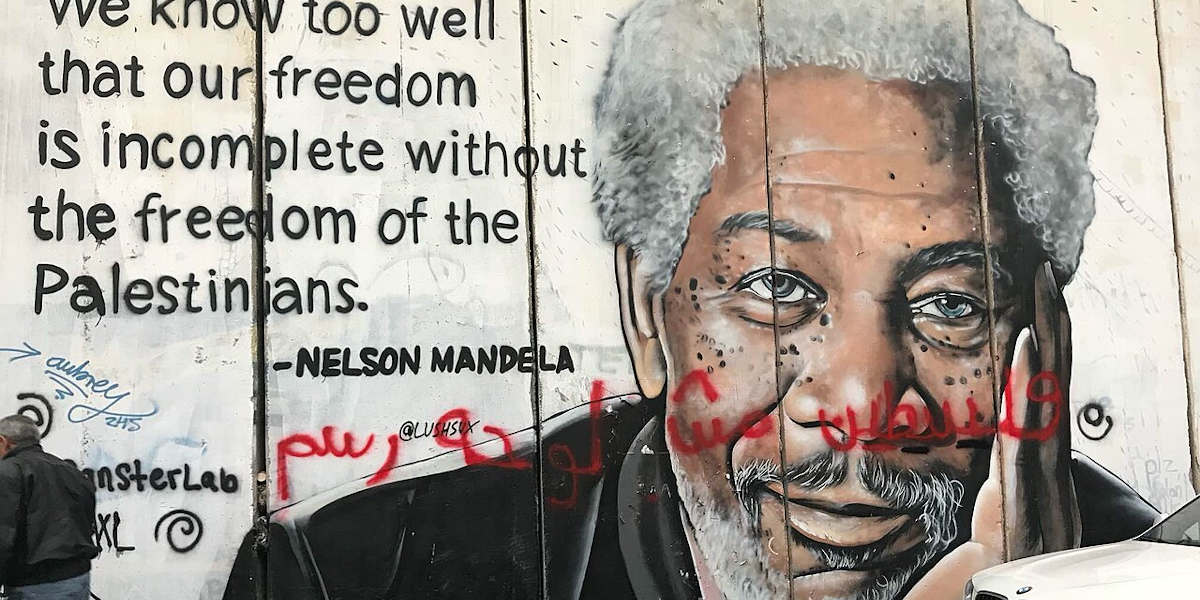The landmark report released by Amnesty International last week can be condensed into a single, stark sentence: ‘whether they live in Gaza, East Jerusalem and the rest of the West Bank or Israel itself, Palestinians are treated as an inferior racial group and systematically deprived of their rights.’
Amnesty lays out four years of research in 280 pages of forensic detail outlining exactly how Israel is carrying out its decades-long crime of apartheid.
This isn’t actually news. It is only an affirmation of what Palestinians have been articulating for decades. It is, however, a game-changing moment. The third ‘chapter’ in a series of similar reports – after Israel’s leading human rights organisation B’tselem and then Human Rights Watch (HRW) – the findings of the world’s most respected human rights monitoring body seals the consensus that the reality of Israel is apartheid.
Israel, from its birth in 1948 has been an apartheid state – and the reality of that is finally becoming undeniable
The report outlines the action that must urgently follow for justice and accountability and the dismantling of 21st century apartheid. The responsibilities that rest on the shoulders of the international community, national governments and public bodies are clear: to not support the system of apartheid or offer aid or assistance to its maintenance. All businesses should cease activities that are contributing to, or benefiting from this status quo. We cannot and should not seek to have normal relations with an apartheid state.
This is especially important given that Israel and its allies are devoting massive energy towards criminalising and delegitimising language that describes the reality accurately. Unsurprisingly, the Israeli state has not engaged with the content of Amnesty’s report, just as it did not address the detailed evidence assembled by B’tselem and HRW. Instead, it has reverted to the familiar smear that those collecting the evidence are antisemitic – a statement that has been shamefully supported by pro-Israel groups in the UK.
In light of all this, the international human rights consensus is therefore important because it destroys the narrative carapace with which Israel so desperately tries to shield itself from accountability: that it is a liberal democracy engaged in a conflict rooted in separate nationalist aspirations, that can be resolved through compromise and processes of conflict resolution.
Parliamentary complacence
The response of many of our political leaders to the Amnesty report predictably followed a similar framing, with platitudes of support for a two-state solution and rhetorical opposition to the occupation of Gaza, the West Bank and East Jerusalem. The day after the report was launched, without a sideways glance at it, the UK government launched a consultation on how it can improve trade with Israel. Foreign Secretary Liz Truss recently included Israel and the Gulf states in her ‘network of liberty’ speech in which she emphasised that Israel serves as a democratic ally. These are the narratives that Amnesty’s report precisely, methodically, legalistically strips away.
Keir Starmer, the leader of the opposition, has made no public response to the report’s damning evidence either. Perhaps this is no surprise given his recent speech to Labour Friends of Israel, during which he framed the issue not as one of injustice, but ‘a tragedy in the ancient and most precise sense of the word: a clash between right and right.’ This is despite a motion passed at last year’s Labour Party conference which recognised Israel’s crimes of apartheid and called for sanctions against it.
Rather than waking up to the UK’s own role in sustaining Israel’s system of apartheid, and addressing it, the government seems determined to repress the cause of justice for Palestinians by introducing a law preventing public bodies from divesting from complicit companies.
Our South Africa moment
However, this has not deterred people from expressing their solidarity. For example, the Trades Union Congress (TUC), the federation representing the majority of trade unions in England and Wales, passed motions that directly articulated Israel’s crimes of apartheid at two consecutive conferences in 2020 and 2021.
Israel’s current status quo cannot hold. It may have been able to disguise its crimes when the only voices calling them out were those of the Palestinians, but as the witness list grows across international civil society, as testimonies spread around the world and into the public consciousness, so too is the pressure for justice and liberation. This was only too visible last summer when hundreds of thousands marched across the world in response to the brutality of Israeli forces’ evictions in Sheikh Jarrah and further military assaults on Gaza.
Israel, from its birth in 1948 has been an apartheid state – and the reality of that is finally becoming undeniable and inescapable. As Omar Barghouti, the founder of the Boycott Divestment and Sanctions (BDS) movement, recently said, ‘our South Africa moment is nearing.’ Amnesty’s report has brought it one step closer. Together, we will take the next.











